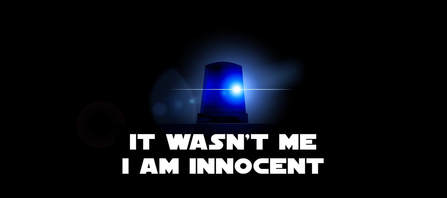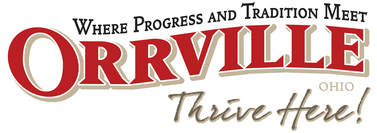|
“Is that bullshit at some point?” A dear friend of mine texted me this question during a presentation about fostering inclusive church communities (don’t worry, he’s a vocal advocate for inclusion of all people). I’d described the importance of people-first language (a person who uses a wheelchair rather than a paraplegic), and specifically the commitment to refer to us all as persons with different abilities because it doesn’t prioritize people that have certain abilities over those that don’t have those same abilities. In other words, describing us all as people with different abilities removes the value judgement that more abilities = better.
It’s helpful to understand that both my friend and I have hidden disabilities. We each live with different mental disorders. We each find joyful days and days of struggle. His question comes from a very understandable place. Most of the time, we’d rather live life without our disabilities. It was an honest question because we often imagine that we'd be better off without many of the limitations that shape our lives. Yet, we also must ask how those different abilities have shaped us for the good. At our core, would I be the same person if I didn’t live with an anxiety disorder, depression, or OCD? What has that combination of chemical imbalances and psycho-spiritual torment taught me that I could not have otherwise known? Does the image of God shine through me despite my disabilities or is God’s image present within my disabilities? Of course, that’s a false dichotomy. It could be both. The next question that came up in our conversation is this: when we enter God’s eternity, what type of transformation happens to our bodies? Jesus’s scars and descriptive of one possibility. Our eternal bodies are shaped by our presence realities. I don’t mean to prooftext the situation here, but I find this incredibly instructive. Many people imagine heaven as a place where there’s no such thing as a personal disability. No physical or mental limitation. We’re all the perfect version of ourselves. Except that goes back to the original question. It assumes ability is perfection. Plus, if you talk about this version of heaven too much, it starts to sound way too much like a desire for a master race without impurity. That is neither Christian nor Christ-like. To be sure, that’s not the intent of many people, but we might ask instead: What are we excluding from heaven if everyone has the same abilities? This hit even closer to home this week when my dear friend Jimmy Lefler died. Jimmy, a member of our church, lived his entire life with a mental disability and spent the last couple of decades in an assisted living facility for people who live with disabilities. Through Jimmy, I developed relationships with all sorts of people with various abilities. Together with Jimmy, CLC even developed a program call Across the Spectrum, which creates opportunities for spiritual development for people of all abilities. Jimmy lived abundant life in Christ more than most any person I know, without caveat. That all provides the background music to me today as I write Jimmy’s funeral sermon. When we reunite with Jimmy in God’s eternity, who will we meet? Is our hope in Christ that Jimmy would receive abilities he never had in this life, and for that matter, never expressed a desire to have? Or is it that the entire populace would see what we’ve all known all along: that Jimmy’s value isn’t determined by abilities he has or doesn’t have? Is our hope that Jimmy would never need assistance or that all people would rejoice in the opportunity to assist someone who need it? A few things are most certainly true. One is that I have no certain knowledge of what abilities any of us will have in God’s eternal presence. Another is that, whatever we need, God will provide. Perhaps some of us, because of the ways our abilities have shaped us, need a transformation that allows us to do more or less in order to fully experience God’s fantastic truth. Perhaps others of us will find not our abilities transformed, but the willingness of others to help us do what we can’t, as well as a willingness to ask us to do what we can. I suppose the point of this all is that, no, it’s not bullshit, but it will always seem like bullshit when we define more abilities as more valuable. Value in the Kingdom of God is incredibly different than value in the workforce. I learned through Jimmy things I had never know about God, about love, and about being the church, things that he shared through his skills and limitations. I couldn’t have loved or appreciated Jimmy more if he had more abilities. I can’t be sure that would be the same person. Most instructive for me in this thought process is the fact that Jimmy never lamented his condition to me. He didn’t see himself as someone to pity. He lived with joy, with wonder, with a practically unparalleled passion for life. So, from Jimmy, I’ve learned to appreciate my limitations more, and how they’ve shaped me. I've learned to appreciate others' abilities, abilities that are different than mine but no less valid. Whenever we meet, in the fullness of God's Kingdom, I'll know that it was Jimmy's existence in this life that taught me to love all the more, not despite of our differences, but through them.
1 Comment
 Accusations are strange things. At various times in my life, I've been accused of just odd stuff. Once, while talking with Michelle in a public pool, we were accused (incredibly falsely) of having sex because we were standing close to one another and whispering in an attempt to not disturb the other pool attendees. How embarrassing, not to mention icky! I really can't fathom the physics of what this person thought they saw. Another time, after receiving advice from Duke Divinity School staff on how to register in order to save on the overall cost of education, I was falsely accused by another staff member of intending to deceive the school and steal from the institution that I loved. I was shocked at the internal miscommunication and saddened at the personal nature of the assumptions made about my character. In very different ways, these violations of my integrity were painful, despite the fact that they were patently untrue. The most haunting part of these false accusations, and others like them in my life, has been the reality that I was attempting to do what was right. With the situation itself being misread, I was misread. It wasn't the behaviors I was accused of, unfortunate as they were, but the specter of myself that formed in these people's minds. The distorted version of myself formed in these people's mind looked back at me with a piercing possibility: Are you that man? Even if the answer is no, to look at yourself as that caricature is a frightening endeavor. Though I was quickly vindicated in both cases, there was something missing in each case: a friend seeking the truth, an accuser wanting true justice rather than to inflict punishment.  Of course, there are worse accusations. Those that are true. Some accusations are the entire truth, like the melody of the song, while others ring true like a harmony or support the truth as a rhythm. Any accusation that fits within truth's song stings because we've lied to ourselves, convinced ourselves to listen to the dissonance of a lie and turned our ears to the amelodic falsehoods that seek to rule our worlds. King David fell into such a trap, In 2 Samuel 11-12, we read about King David's forced violation of Bathsheba and then attempt to cover it up, first through the deception of bringing her husband Uriah home from the war. When Uriah wouldn't sleep with Bathsheba - as a sign of his commitment to David, no less - David then conspired to murder Uriah by placing him at the front of the fighting and ensuring his immediate death by telling his generals to pull back Uriah's support and leave him exposed to the Joabite attack. The accusation comes for David when Nathan, a prophet in David's house, speaks to David through a parable where a rich man steals a lamb from a poor man (obviously, one of the major issues even the Biblical authors couldn't see was that women aren't property and deserve much more humane treatment than Bathsheba is given in this entire account). David becomes incensed at the rich man's insensitivity to the poor man's plight, at least until Nathan raises the curtain on his ruse and declares to David, "You are that man!" The accusation breaks David's heart, not because he's been seen falsely, but because he's been seen so true. Yet, someone like Nathan is necessary for truth telling. Nathan is honest, bold, a witness, and a friend. Witnesses are necessary for obvious reasons, for they help to reveal the truth from another perspective. Fortunately, in both of the cases I mentioned above, witnesses came to my defense to speak the truth. Yet, sometimes we're rightly accused of things, and we don't have witnesses like Nathan around to help us honestly assess our culpability. Whether we're blind to our faults or our own harshest critics, we're most often improper judges of our guilt. Nathan's conviction to speak the truth in a way that pursues David's repentance is perhaps the best form of an accusation. Nathan seeks not to shame David, but to make right what was wrong. Justice must be served, but justice is not punishment. Justice is retribution that opens the door to the possibility of reconciliation. Bring people like Nathan into your life, people that are brave enough to accuse you when you're wrong and want to help make it right. People who will witness on your behalf when you're innocent. People who help you bear the accusations that sing the truth in you, those that ring falsely, and those that harmonize enough to sting.  For a fan of comic books and graphic novels like myself, few things inspire excitement like an origin story. How did this superhero gain their powers? What led to the zombie outbreak? What led to this character’s choice to choose evil rather than good? These questions, and a multitude of others, drive the narrative of development. Comparatively, our own origin stories can feel less compelling. Mine? Born at Dunlap Memorial Hospital. Grew up on Back Massillon Road. Started school at North Elementary. Attended the now-demolished junior high, which a building that formerly housed the high school. Joined the church at Augsburg Lutheran. All in Orrville, Ohio. You’ve probably never heard of it, and if you have, you've probably just read about it on the back of a Smucker's jar or in Bobby Knight's biography. But when I reflect on my life, and the way that I lived it, it was never a boring endeavor. Back Massillon Road might not have the same historic resonance as Route 66 or cultural vitality as Broadway, but until you’ve caught fish in Renner’s pond, busted through Troyer’s electric fences while running through the fields, pulled friends on saucer sleds tied to ATVs in the Ohio snow, and leapt over bonfires with boys who desperately wanted to be men, you’ll never know excitement like I have. North Elementary is now gone, but never will the bickering about it most assuredly not being North Street, though it seemed everyone who went to Maple or Oak wanted redub Mineral Springs Street (I mean, seriously, it was just the northernmost elementary school. What’s so difficult about that! But I digress…). That Junior High was where I realized I hated running, experienced my first kiss, realized I loved playing football and discovered that my knees didn’t care for the sport all that much. I don’t remember anything about my birth, but the same doctor that delivered me into this world at Dunlap also taught Sunday school classes at Augsburg that included “The Gospel According to the Simpsons” and even helped me to believe in the miraculous. In fact, at Augsburg, I learned to see God at work on Back Massillon, in school, at work, truly everywhere. Our origins aren’t boring. Perhaps we just fail to remember the excitement at the heart of our developing lives. Perhaps we forget God’s presence on every step of the journey. Origins play a central role in the stories of our faith. What would Eve and Adam be without the initial story of their formation at God’s hands? Just creatures of dust with no breath of life. Where would Noah – and for that matter, the rest of creation – be without God’s initial intervention? At the bottom of the sea. Ruth would still be in Moab without Boaz and unsure of God’s protective, redemptive love. Who knows what Mary’s legacy might be without God’s origins? Likely that of most women in the 1st century. Sold to an older man for marriage and immediately forgotten by him and by history. And yet, because of our origins in God’s story, she’s now known as theotokos, God-bearer, the one who gave birth to divinity and salvation within humanity. You, too, have an origin story. Wherever it began, and however it developed, God was there. At times, encouraging. At times, challenging. At times, weeping with you, lamenting the hurt others caused you and you caused others (and, likely, you caused yourself as well). Always celebrating your origin, for your origin is God’s image. Your breath is the very Spirit of God. If you can’t see it, or can’t imagine it, look again. In God’s presence, places like Orrville become the Edens of our origins. |
AuthorSimultaneously a sinner and a saint. Archives
September 2020
Categories |
 RSS Feed
RSS Feed